General News
Weeks after massive pro-EU protests, Georgians wonder what’s next
Published
1 year agoon
By
NaijaGazette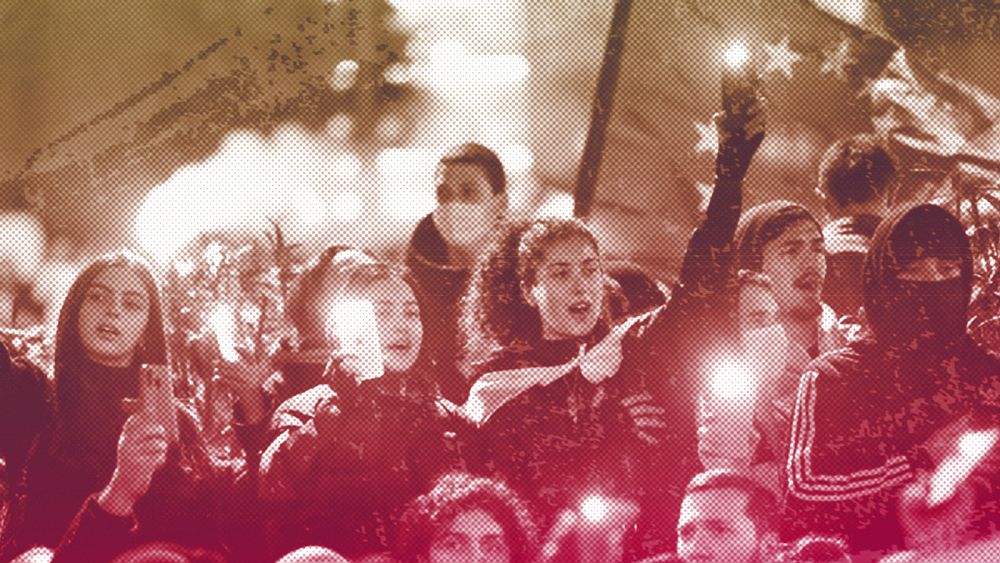
The opinions expressed in this article are those of the author and do not represent in any way the editorial position of Euronews.
Over the recent years, my home city of Tbilisi has seen perhaps seen more than its fair share of mass political protests — some peaceful, some less so.
Many of them have been touched in some way by the big geopolitical question that we in Georgia live with every day.
What is our relationship, as a small state aspiring for democracy of just up to 4 million people in the southern Caucasus, with the much larger, and increasingly autocratic Russian Federation that lies on our northern border?
Over three days and two nights, tens of thousands of Georgians took to the streets again to give their answer to that question just a couple of weeks ago.
I was surprised myself by how many of them were young; they waved EU flags in the face of water cannons amid clouds of tear gas, defying the threat of arrest by baton-wielding riot police.
They were angry over measures introduced by the ruling Georgia Dream that — for the protestors — were a clear sign of moving closer to Russia and away from building closer ties with the European Union.
We’ve seen this illiberal playbook elsewhere — and it’s not good
The protestors were demanding that the government abandon a proposed new law to regulate international funding of local NGOs — the latest stage in a government campaign against NGOs and against critics in the media that started gathering pace earlier in the year.
For someone like me, who has worked with independent civil society groups in Georgia for more than two decades, the draft NGO law had obvious and sinister parallels.
It mirrored similar restrictions introduced in Russia by its President Vladimir Putin in 2012, at the start of a campaign that has eliminated critical groups such as Memorial, the human rights movement launched in the Soviet Union in 1989.
And we had seen the playbook before in Hungary, where Viktor Orban has demonised local human rights groups for accepting foreign funds while also extending government control over the media.
In Georgia, a similar assault on critical voices has gathered pace since Russia’s full-scale invasion of Ukraine last year, which has dramatically intensified the political tensions in a country that was itself invaded by Russia in 2008.
The government initially refrained from directly accusing Russia of aggression while moving rapidly to seek EU candidate status in early March last year, along with Ukraine and Moldova.
But since then, the ruling party — backed by a billionaire oligarch who made his fortune in Russia — has steadily moved to openly distance itself from Kyiv, all the while criticising President Volodymyr Zelenskyy.
Coming back for water cannons and tear gas, time and again
This growing tension set the scene for the vast outpouring of public anger that erupted after ruling party MPs approved the first reading of the NGO financing bill in parliament on 7 March.
Georgian NGOs and independent media outlets made a concerted effort to explain their opposition to the bill to the public as soon as it was passed.
It was clear that the protests were ultimately galvanized more by fears for Georgia’s EU hopes, rather than concern for the principles of NGO registration, with protestors, some waving Ukrainian flags, chanting “no Russian law in Georgia”.
I could not have imagined the extraordinary level of support from young Georgian Gen-Zers, who came back time and again to protest in the face of water cannons and tear gas.
I believe it was their participation that finally decided the fate of the bill, which the government announced it was withdrawing on 9 March .
But now what?
The government seems to have been at least temporarily thrown into disarray; on 12 March, Prime Minister Irakli Garibashvili delivered a rambling television interview in which he attacked Zelenskyy for making comments sympathetic to the protests.
Garibashvili also accused the mother of imprisoned former president Mikheil Saakashvili of using a student group to “brainwash” young people who took part in the protests.
Meanwhile, Georgia’s civil society groups see the outcome of the protests as only the first step.
In the weeks and months ahead, we will also be redoubling efforts to ensure that the government delivers on the drive to acquire EU candidacy status.
It needs to meet — as soon as by the end of this year — the conditions set by the EU for the process to advance.
Those steps will require a commitment to credible judicial reform, moves to combat deep-rooted corruption, steps to support media freedom and to promote truly accountable government.
But they are also about more than a ticket to potential EU membership for Georgia someday in the future.
They offer what I believe was ultimately what brought so many Georgians out onto the streets this month: the promise of a future for a truly independent and democratic Georgia, led by politicians who are committed not to their own self-interest but to the best interests of all our people.
Keti Khutsishvili is the Executive Director of the Open Society Georgia Foundation, an NGO launched in 1994 to support Georgia’s pursuit of a democratic and open society after its independence from the Soviet Union.
At Euronews, we believe all views matter. Contact us at view@euronews.com to send pitches or submissions and be part of the conversation.
Disclaimer: No copyright infringement intended. All rights and credits reserved to respective owner(s).
You may like
-
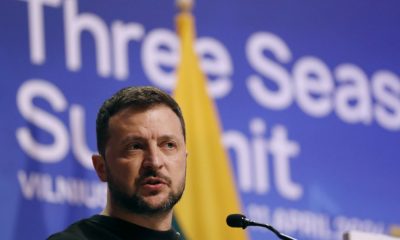

Polish man arrested on suspicion of spying in Zelenskyy assassination plot
-
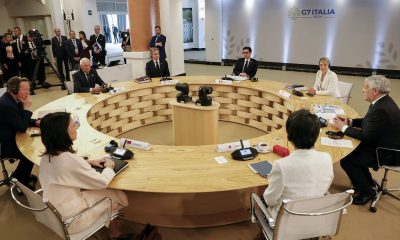

EU foreign policy chief Josep Borrell warns Middle East ‘on edge of regional war’
-
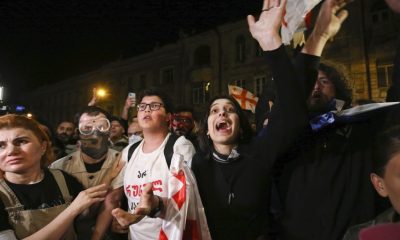

Controversial ‘Russian law’ passes first reading in Georgia parliament
-


Italy prepares to negotiate terms of fiscal adjustment ahead of EU elections
-
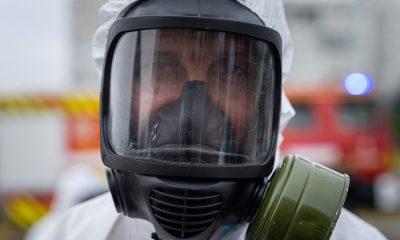

Is Europe prepared for nuclear catastrophe at Zaporizhzhia?
-
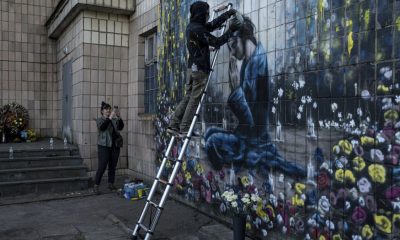

US artists paint memorial for civilians killed by Russian forces in Ukraine’s Bucha

Regina Rebels forward striving for top step of podium – Regina

EPL: Arsenal to sell four players in summer transfer window after Champions League exit

Chelsea star expresses desire to leave Pochettino’s side

Climate Damage Costs Could Total $38 Trillion per Year by 2050, Study Finds

NPFL UPDATE: Ilechukwu Stays Cautious Over Enugu Rangers’ Title Chances

Sports Minister, Enoh reveals when Super Eagles will have new coach

Cameroon beat Nigeria in opening match

EU debates future regulation of Artificial Intelligence within the bloc

Burna Boy Bags 4 Nominations On 2023 Soul Train Awards

Grassroot Football Teams Pays Congratulatory Visit To Alhaji Salisu Usman Galadima

Nigeria vs Lesotho: Notsi Beef up Squad for Super Eagles

